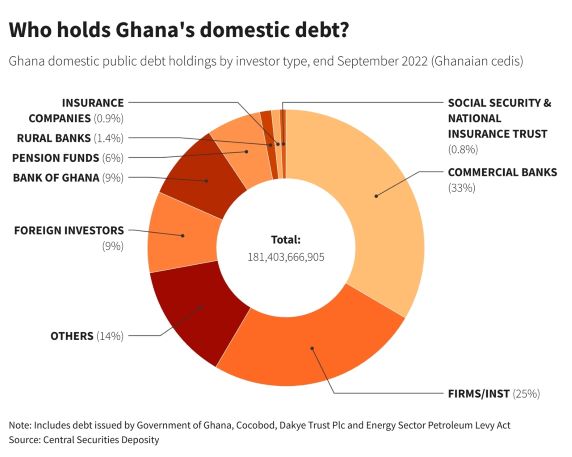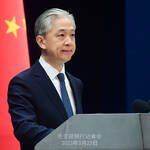Some Ghanaian Civil Society Organisations (CSOs) are calling on international lenders to cancel enough of Ghana’s debt to make it sustainable.
They admonished called G20, and UK to support Ghana to stay in default on all external creditors who refuse to accept the scale of debt cancellation needed.
It said in December, Ghana announced it was suspending debt payments to external private lenders and had applied for the G20 Common Framework for Debt Treatments.
GH₵467.4bn public debt
Ghana’s public debt was GH₵467.4 billion, the equivalent of ($37.4 billion) in September, of which 42% is domestic debt while the remaining 58% is foreign debt.
$13 billion in Eurobonds
Ghana has $13 billion in Eurobonds, with holders including major global asset managers such as BlackRock, Vontobel, AllianceBernstein, Neuberger Berman and PIMCO.
$3.2 billion of bilateral debt and $6.3 billion with multilateral institutions
At the end of 2021, Ghana had $3.2 billion of bilateral debt and $6.3 billion with multilateral institutions, $4.6 billion of that with the World Bank, according to World Bank data.
“Ghana is expected to miss its first payment on a foreign currency bond on 18 January, a $41 million interest payment on a $1 billion bond.
Ghana seeking $3 billion loan
Ghana and the International Monetary Fund (IMF) have reached staff-level agreement on economic policies and reforms to be supported by a new three-year arrangement under the Extended Credit Facility (ECF) of about $3 billion.
Covid-19, soaring energy and food prices, higher interest rates, a strong dollar and a global slowdown have now rendered borrowing costs prohibitive, duly closing the trap upon vulnerable countries.
GH₵137.3bn domestic debt exchange programme
Government pushing for a debt exchange of local bonds worth about GH₵137.3 billion ($10.5 billion)
It said Ghana was the latest country, which had defaulted on debt and sought a debt restructuring since the Covid-19 pandemic began, and food and energy prices shot up in 2022.
The signatories of the statement include the Integrated Social Development Centre (ISODEC), Tax Justice Coalition Ghana, Ghana Integrity Initiative, Caritas Ghana, and ActionAid Ghana.
It is also supported by the African Forum and Network on Debt and Development (Afrodad), Debt Justice, Eurodad, Christian Aid, Oxfam, Public Services International and Third World Network.
In the statement the signatories: “welcome Ghana’s suspension of most external debt payments until creditors agree to cancel enough debt to make it sustainable.”
High interest rates private lenders charged
They point out that the high interest rates private lenders charged mean that they should now be willing to accept losses on their risky bets:
“Ghana’s lenders, particularly private lenders, lent at high-interest rates because of the supposed risk of lending to Ghana. The interest rate on Ghana’s Eurobonds is between seven per cent and 11%.
“That risk has materialised with the global Covid-19 pandemic, rising food and energy prices, and increasing global interest rates.
“Given that they lent seeking high returns, it is only right that following these economic shocks, private lenders willingly accept losses and swiftly agree significant debt cancellation for Ghana.”
The organisations call on the G20, and UK, to support Ghana in the debt negotiations:
“The G20 can help by making clear that Ghana will be politically and financially supported to remain in default on any creditor which does not accept the necessary debt restructuring. Furthermore, Ghana’s foreign currency bonds are governed by English law.
“The UK parliament could update their Debt Relief (Developing Countries) Act to specify that no creditor can sue under English law for more than they would have gotten if they had taken part in the Common Framework debt restructuring.”
The statement also calls for increased transparency, including bondholders releasing information on how much debt they own and the price they paid for it.
The statement said Ghana’s Eurobonds were currently trading at 35-40 cents on the dollar.
The spread on Ghana’s bonds held by foreign investors is currently at over 3,000.
The signatories point out that tackling the debt crisis in many African countries requires, “a reformed international financial architecture through the United Nations, which delivers sustainable development finance to all countries.”
- Military service commanders sworn into Armed Forces Council - 25 April 2025
- Finance Minister unveils plan to tackle 2024 payables - 25 April 2025
- 2 potential flagbearers donate GH¢3m and GH¢1m to NPP - 25 April 2025




